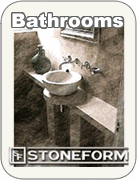VIEWS
MOTORING: How to Take The Edge Off The Petrol Price Pinch
Recent Western Cape Business News
Many motorists are reeling from Finance Minister Nhlanhla Nene’s Budget Speech announcement of rising fuel taxes, which will see South Africans fork out 81c per litre as of April 2015. It’s as good a time as any to start evaluating ways of lowering your consumption, says Jeff Osborne, Head of Gumtree Automotive.
“We know these hikes are inevitable, and coupled with the fact that the cost of maintaining and insuring your vehicle is becoming increasingly expensive, we have to do what we can to make sure we are consuming less fuel,” he says.
Osborne says there are two primary ways of reducing your fuel bill – good maintenance and driving behaviour.
1. Check your tyre pressure regularly and do not overload
“You can improve fuel consumption by up to 2% by checking your tyre pressure regularly. Over time, tyres naturally leak air, which reduces overall efficiency,” says Osborne. “Secondly, anything that’s weighing your car down is going to cost unnecessary fuel. Keep your spare tyre in the boot, of course, but you don’t need to keep your roof rack or other accessories on hand unless you are using it. It will also reduce unnecessary drag.”
Osborne advises drivers to buy quality tyres from the start. “Only buy known brands of tyres from reputable tyre dealers, and have your tyres fitted professionally. Make sure that your wheels are balanced correctly and your wheel alignment checked. Alignment can be thrown out easily by simply hitting a pothole. Your tyres play a huge role in fuel economy.”
2. Find out how economical your car really is
“Before you can reduce your consumption, you have to know what it is. Set your trip meter to zero when you’ve filled your tank to establish costs, or use an app designed for that purpose. It might be time to trade your fuel guzzler for something more compact, or to invest in a compact car for daily commuting. Compare the operating costs of other models and find out whether or not you can add to your budget by choosing a more economical model.”
3. Drive for consumption
“Speed should not be the primary focus when you drive – unless you are on the race track. Aim to drive smoothly, accelerate gently and avoid unnecessary, sharp breaking. Avoid bringing the car to a total stop when possible – starting from halt uses less fuel. Driving just 16km/h slower will use 9% less fuel,” he states. “Taking your foot of the accelerator and putting up your handbrake up can save a lot of money – and reduce the pressure on your clutch, which can burn out after frequent use.”
4. Plan your route
If possible, plan your journey to find the shortest route with the least traffic. “Again, use apps to plot your route and keep up to date. Failing that, tune in to traffic reports or follow them on Twitter. If you regularly find yourself stuck in traffic, it may be worth speaking to your employer about coming in half an hour later to skip the heaviest traffic – alternatively, plan your meetings in venues closer to home at the beginning and the end of your day.”
5. Car share
You can also shave R68 per 100km if it’s shared, says Osborne. “There are over a thousand requests for lift clubs online, which also reduces your carbon footprint. If you are unable to find one, look into safe public transport in your area. Biking or walking where possible is a great way to get fit and reduce your fuel bill.”
6. Take it easy
Aggressive driving behaviour such as speeding, rapid acceleration, racing from traffic light to traffic light and slamming on your brakes will use more fuel. Edmunds Testing found that aggressing driving can increase your fuel usage by up to 33%. “Which suggests you could effectively reduce your fuel bill by a third by driving more sedately,” says Osborne.
7. Turn off the A/C
Air conditioning is another big culprit. “Your A/C compressor is run by a belt in the engine and does use more fuel when activated. The added consumption will be more noticeable at idle. Testing has shown that aircon can account for about 5% of a car’s annual fuel bill and for the modern energy-efficient vehicle it’s about half of that amount,” explains Osborne. Ironically, driving with your windows down is not a better alternative. “The extra drag caused by open windows is not good for your fuel economy. It’s much better for aerodynamics to keep your windows shut. Of course, air conditioning uses the most fuel when the car idles. Keep your air conditioning turned off until you’ve reached cruising speed and then turn it on. You don’t have to eliminate air conditioning, but try to limit its use.”
Business News Sector Tags:
|
|
||
|
Accommodation
Foreign Exchange
Directory
Fax 2 Email
Finance
Furniture
Online Casino
Restaurant
Shop Online
Study IT Online
Web Design
Weddings
Work from Home
|
||
|
Company News
|
||









